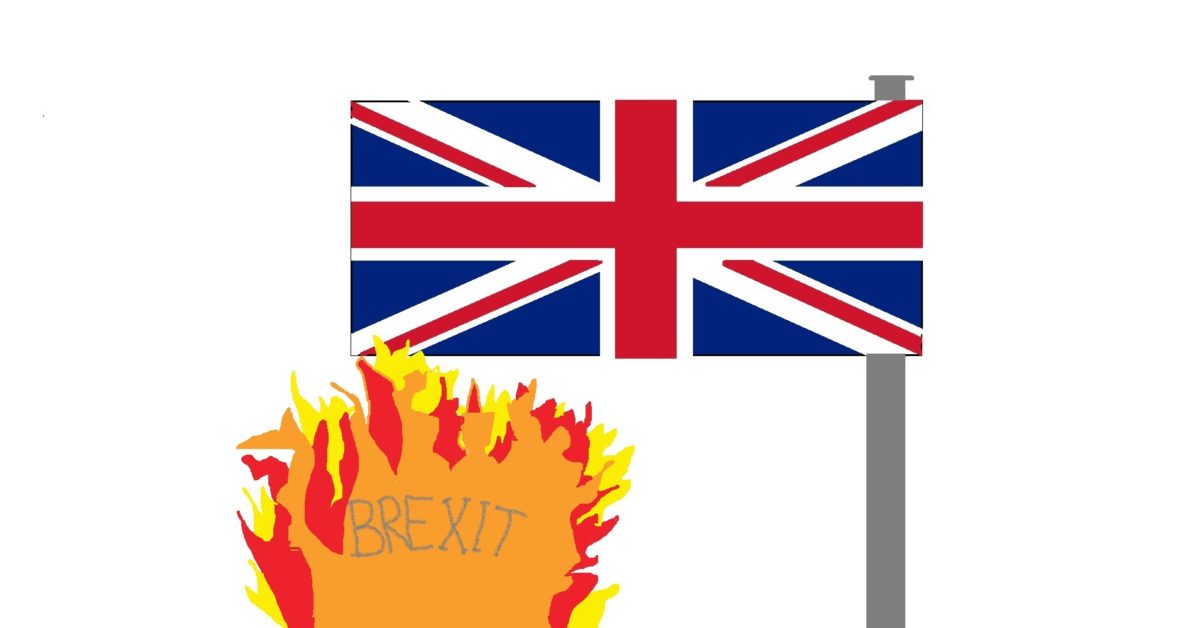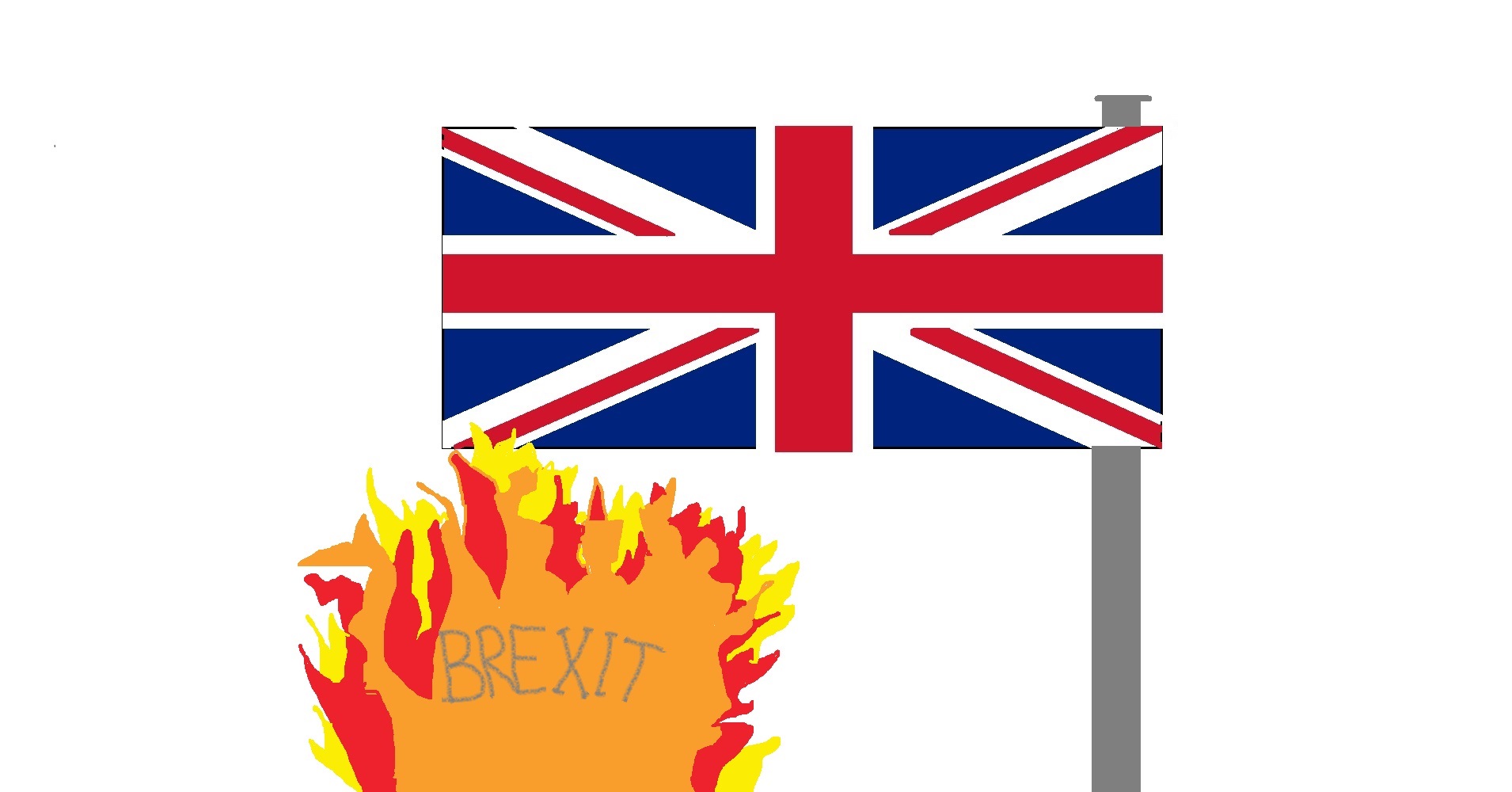
You’re a business owner. An opportunity arises for expansion. The risks are daunting – but the potential boost to income is huge. How do you decide whether to proceed? The first thing any halfway competent company director will do in this situation is undertake a cost-benefit analysis.
Essentially, you note down all the anticipated dividends of the project, alongside all the costs, risks and drawbacks. Assign values to each dividend and cost, then add up both totals. If the figure in the first column is greater than the figure in the second, expansion is officially a Good Idea, and you should crack on. If the opposite is true, you can the plan.
The technique has two main weaknesses. First, benefits and costs can be hard to evaluate. How much is an hour of your time worth? What about stress? Environmental impact? Reputational damage to the company? Can you put any meaningful value on things like job satisfaction, or the feeling that you’ve made a positive difference to the world?
Second, the universe loves delivering nasty surprises. It’s impossible to factor in every eventuality, and even the best-informed predictions can be undone by twists of fate. What if demand for your product suddenly fizzles? What if interest rates shoot up immediately after you take out that huge loan? What if your product is implicated, however unfairly, in a national scandal?
But while it might be an inexact science, taking any decision that may have far-ranging consequences without some sort of attempt to estimate its chances of success is downright irresponsible.
Hang on, you interject. Isn’t “cost-benefit analysis” just a fancy economese way of saying “making a list of pros and cons”? Superb observational skills, I reply. While the term comes from economics (coined by the French engineer Jules Dupuit in the 1840s, it didn’t catch on until the 1950s), it does bear some similarities to an operation that humans have been carrying out for millennia.
In fact, your brain is conducting CBAs all the time; it just does most of them – ones involving familiar situations – at a subconscious level. “Shall we go to work today?” your automatic, system 1 brain asks itself. “Uh, yeah, if we want to carry on putting food on the table.” “Shall I dodge this falling rock?” “Duh!”
Sometimes, though, when we find ourselves in novel situations, or ones where the arithmetic is not laughably simple, the reflective system 2 brain steps in.
Say you’re in a relationship, but things are getting a bit stale, so you’re umming and ahhing about ditching the boyf. Some in this predicament will go with their gut; others might talk to a friend or family member; still others will actually hunt down a pen and paper and tot up the pluses and minuses of giving poor Baz the heave-ho. The finished report might look something like this:
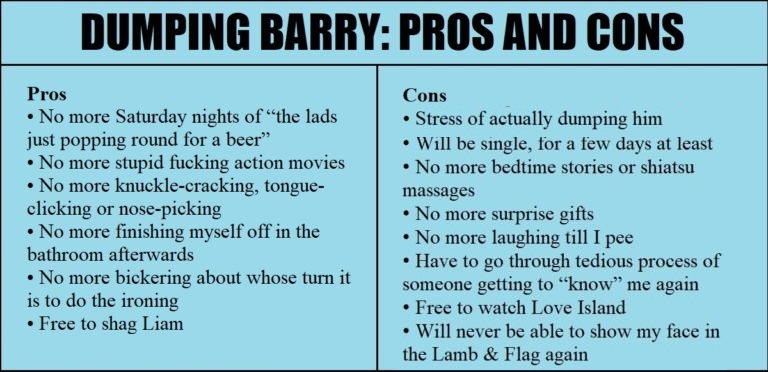
Like the business owner’s, Sammie’s calculations are bedevilled by uncertainty – what if it turns out she misses the action movies and tongue-clicking? What if Liam doesn’t fancy her after all? – but now there’s an extra complication. Whereas a businessperson can at least attempt to assign a monetary value to each cost and benefit in order to make them easier to compare, Sammie has no such option.
While the business assessment would read something like “New office = £100,000 per year, extra staff = £80,000 per year …”, Sammie’s is a mess of question marks. “No more Saturday nights of the lads just popping round for one beer” = ??, no more stupid fucking action movies = ?? …”
Since there are no objectively established units for “value”, all Sammie can do is compare the two lists and try to get a feel for which wins out.
The same problems beset CBAs in the public arena. And as the decisions of local councils, military commanders and national governments can affect millions, the need to properly evaluate the ramifications of any new operations or policies is all the greater. Let’s take two examples.

If there were some way to “score” these quantities objectively, there would never be any dispute over whether a particular policy was right or wrong. But the awkward truth is, if you asked 100 people to rank the costs and benefits listed above, you’d get 100 widely varying results. While some people attach great importance to the environment, others are more concerned with personal liberty, the economy, and their personal comfort and convenience.
It so happens that in the case of cars – powerful environmental movements notwithstanding – most countries have come to broadly similar conclusions. While mass motorised transport has many sizeable drawbacks, one of its benefits is considered so great that it outweighs all the negative considerations (although more and more countries are taking steps to minimise the downsides by encouraging the design of safer, more environmentally friendly vehicles, imposing speed limits, criminalising drink driving and using phones while driving, and so on).
Now for a more contentious and tragically topical issue.

Cost-benefit analyses should not be one-shot deals. If the circumstances or risk factors change, you need to run the scenario again. And this is one reason why policies on gun controls across the modern world are so polarised.
What’s interesting about this case is that technological and social change have altered the calculus. When guns were first invented, they were inefficient and limited in their capacity for damage, capable of firing only single bullets. Today, of course, they are far more sophisticated, with some models able to fire 100 rounds a second. Even an amateur gunman can kill 10 people and injure 26 more in under 30 seconds.
Perhaps just as importantly, times have changed. When America first adopted its lax stance on gun laws, people lived in much smaller concentrations. The world was more lawless – state security was patchy, scrappy and corrupt – so it was more important for citizens to be able to defend themselves; and there were fewer people (in absolute terms, if nothing else) with serious mental illness or bitterness born of social isolation. Run the cost-benefit analysis in the southern states of the US in 1776, and you might well conclude that giving everyone the right to bear firearms was a reasonable proposition. Run it again today, and most people come to a very different conclusion.
The majority of civilised nations have decided, in light of these developments above, that the balance has shifted decisively. The benefits of arming the populace have dwindled and the risks have increased a thousandfold. Mass shootings in the UK and Australia, for example, prompted draconian clampdowns on gun ownership (and as a consequence, no mass shootings have happened there since). It’s only a hardcore of psychopaths in America who refuse point blank to rerun the cost-benefit analysis in 2019.
What about another highly controversial topic, immigration? Well, this post from last November was essentially one big cost-benefit analysis of freedom of movement, so I won’t repeat the arguments here. To summarise: minimal costs, lots of benefits.
Now, let’s cut to the chase and do Brexit.
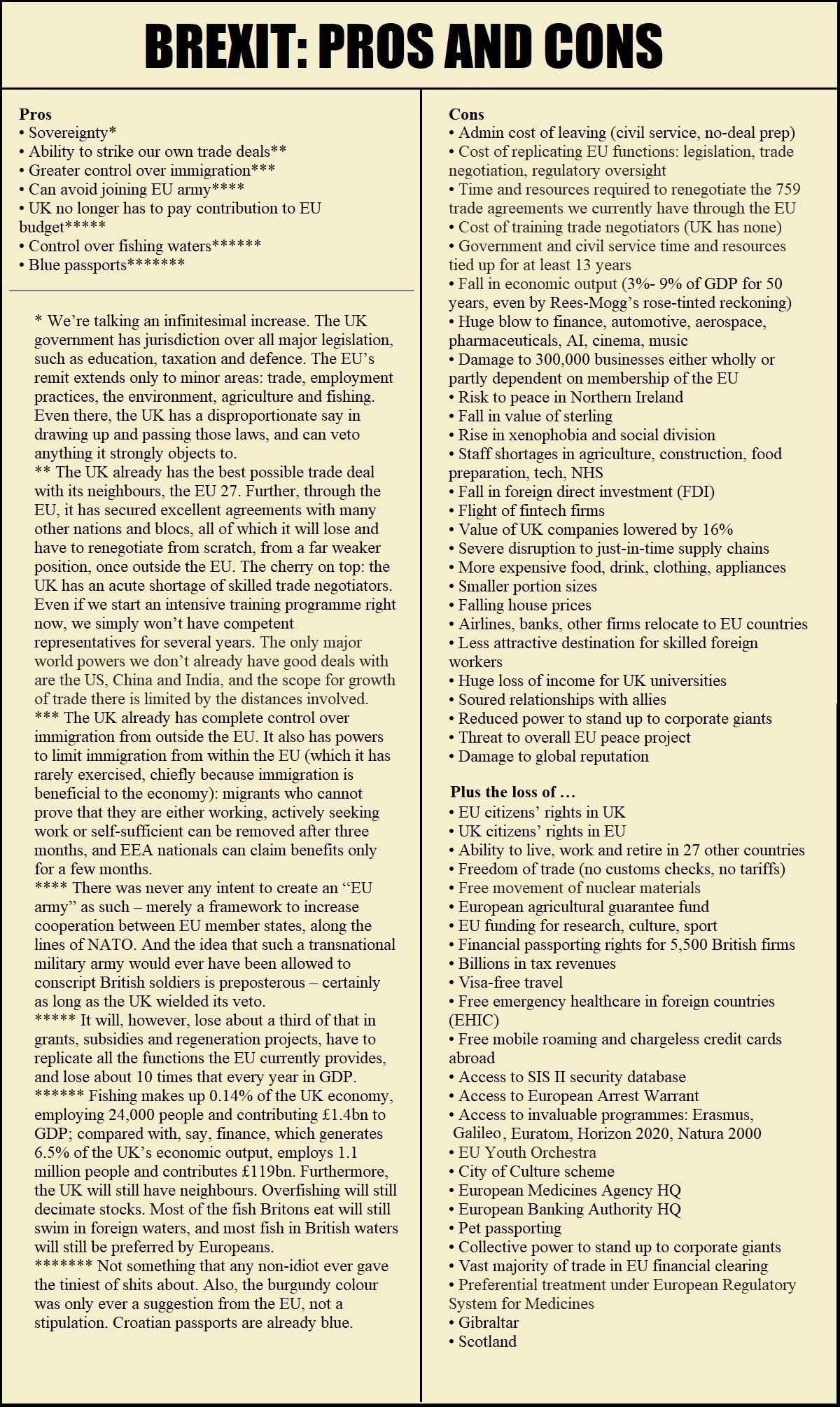
(This is to say nothing of the various laws beneficial to safety standards, workers’ rights and the environment that have been passed by the EU, which we cannot strictly count as costs since they may theoretically survive Brexit. However, if the party leading the UK out is the Conservatives, whose chief motivation for delivering Brexit was precisely the removal of such “Brussels red tape”, you can kiss those goodbye too.)
I’ve done my level best here to make an honest assessment. Despite asking Leavers for tangible upsides of Brexit well over a thousand times, I’ve rarely had any (rational) answers that aren’t covered in the seven points listed. I listed some of the looniest ones here. As for the cons, the evidence for all of them is only a Google search away. But for the exceptionally lazy, many are covered here and here.
There are very few ways you can conclude that column A outweighs column B. But first, let’s be honest: most people, when they voted on 23/6/16, were not aware of the sheer number of items in column B (not even most remainers). For this, much blame must be laid at the feet of the half-hearted and disjointed Remain campaign.
But even now, 38 months later, there is still a sizeable rump of individuals who insist, while generating biologically unfeasible amounts of spittle, that the rewards of Brexit outweigh the costs. How is this possible?
One form of mental gymnastics I regularly encounter is the wholesale dismissal of column B as “Project Fear”. “Of course the European Medicines Agency won’t relocate,” they babble, weeks after it has gone. “Of course there won’t be a hard border in Ireland,” they froth, despite being unable to offer an alternative solution.
Another is to attempt feebly to recast the costs as benefits in disguise: “We can just train our own doctors … The bankers deserved punishment anyway … I preferred it when you could only get raspberries in October.”
But probably the most common attempt at an argument is that you can’t put a price on sovereignty. No matter how numerous or how valuable the entries in column B, sovereignty trumps all. Half of leave voters over 65 said as much in a YouGov survey published in August 2017.
They might have had a point if Britain were actually shackled to a dictatorship and enjoyed no independence at all. But the fact is, the UK only ever pooled a small amount of its competences, in minor areas of law. And it’s not as if it even surrendered those completely; it still had a say – many would say a disproportionately large say – in the drawing up of that legislation, and a powerful veto.
The UK government certainly didn’t think the country had forfeited much sovereignty when it published its Brexit white paper in February 2017: “Whilst Parliament has remained sovereign throughout our membership to the EU,” it said, “it hasn’t always felt like that.”
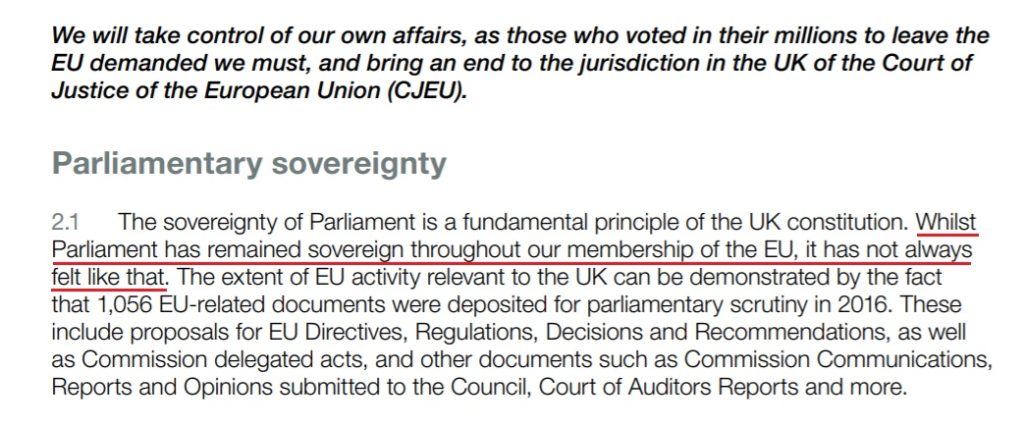
And judging by the polling carried out by Ipsos MORI every year, neither did you, until 2016. If you did, it clearly wasn’t very high on your list of priorities.
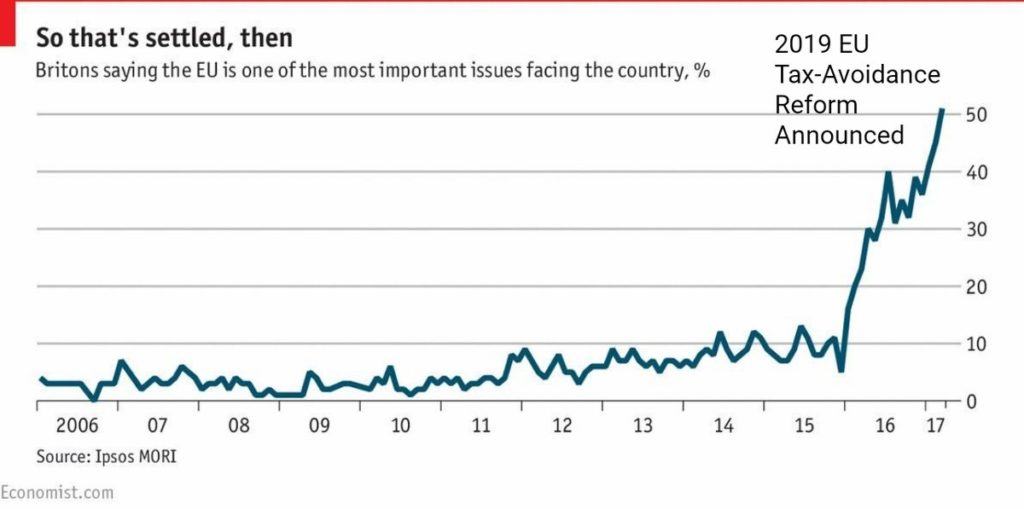
No Brexiter has yet been able to put their finger on any specific negative outcomes of this partial sacrifice of sovereignty; few can name a single law passed by the EU that even mildly inconveniences them. If you’re lucky, they might mumble something about fishing (0.12% of the economy); but they don’t seem to understand that the UK will still have neighbours. If we stop Europeans fishing in “our” waters, they’ll retaliate – and most of the fish that Britons like to eat swim far from British shores. Exporting fish (most of our native species are more popular in other EU countries than they are here) will be harder. And quotas will still need to be observed in order to prevent overfishing.
If sovereignty is really so important to people, why did we hear practically nothing about it before the referendum? Why were they not marching in the streets? The simple answer is, it wasn’t an issue. It’s a buzzword, a revisionist escape clause, a superficially respectable fig leaf for the true underlying drivers of Brexit: unfounded British exceptionalism and full-fat racism.
To anyone whose perception is unclouded by hatred and nostalgia, there’s only one way to interpret this cost-benefit analysis. Half the country made the correct call in 2016. Let’s hope we can persuade enough of the rest to stop chanting “Project Fear” before it becomes clear just how terrifyingly right we were.


